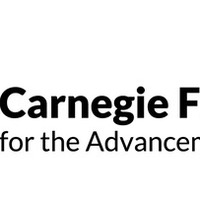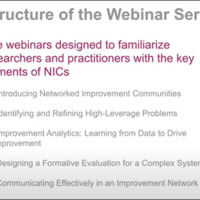Introducing Networked Improvement Communities
Item
- Title
- Introducing Networked Improvement Communities
- Abstract/Description
-
Networked Improvement Communities (NICs) aim to address practical problems through the intentional formation of networks structured specifically for the purpose of practical improvement. Originally conceived of by Douglas Engelbart of SRI International (Engelbart, 1992; 2003), and adapted and honed for the field of education improvement by the Carnegie Foundation for the Advancement of Teaching (Bryk, Gomez, & Grunow, 2011). Participants will be informed about the six core principles of a NIC. These include:
1. making the work problem specific. and user-centered,
2. designing the NIC to capture variation in performance,
3. learning to see and understand the system that produces the current outcomes,
4. the importance of measurement, and why we cannot improve at scale what we cannot measure,
5. the importance of anchoring practical improvement in disciplined inquiry, and
6. how to accelerate improvements through networked communities.
This background to NICs lays the groundwork for the more in-depth, principle-specific webinars that follow in the series. - Date
- Institution
- See all items with this valueINCLUDES Center
- Resource type
- en Research/Scholarly Media
- Resource status/form
- en Film/Audiovisual Recording
- IRE Approach/Concept
- Networked Improvement Community (NIC)
- Featured case/project
- Building a Teaching Effectiveness Network (BTEN)
-
 Carnegie Math Pathways (CMP)
Carnegie Math Pathways (CMP)
- Student Agency Improvement Community (SAIC)
- Grant funding
- National Science Foundation (NSF)
- Grant number
- National Science Foundation Grant #1650508
- Other related resources/entities
-
 Carnegie Foundation for the Advancement of Teaching
Carnegie Foundation for the Advancement of Teaching
-
 SRI International
SRI International
- Citation
- Podkul, T., & Russell, J. L. (2016). Introducing Networked Improvement Communities [Webinar]. https://includescenter.org/webinars/introducing-networked-improvement-communities/
Annotations
There are no annotations for this resource.


